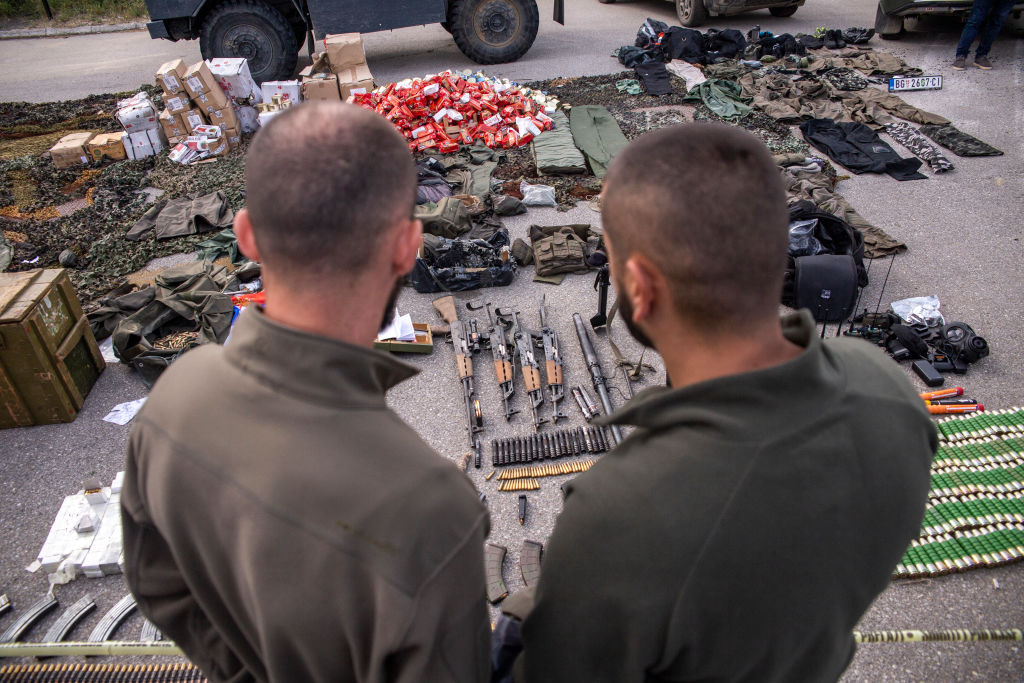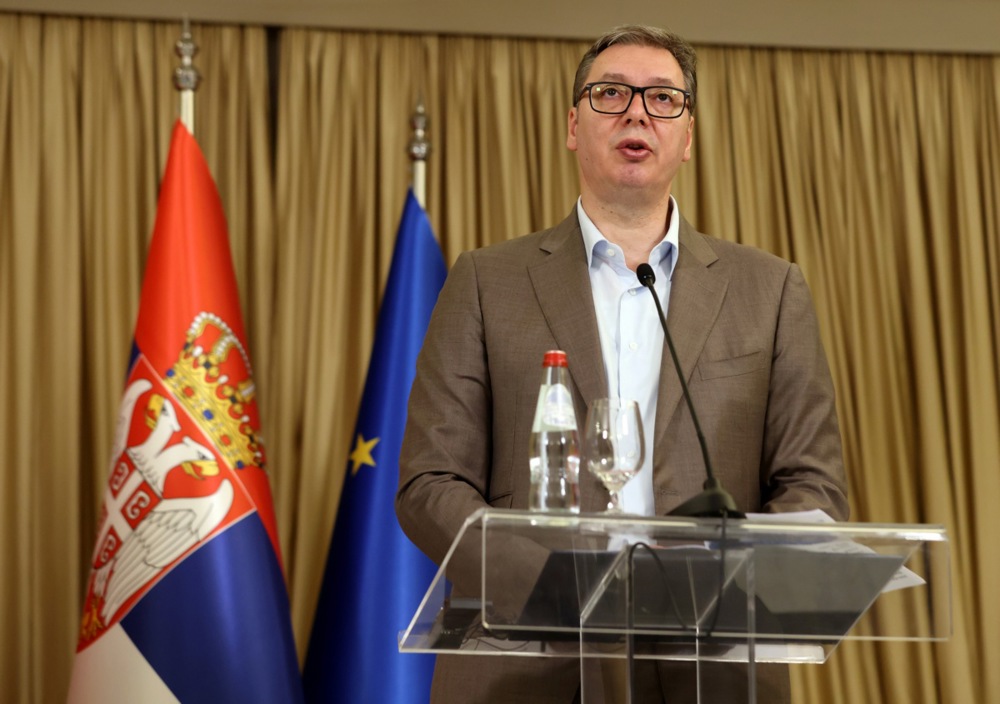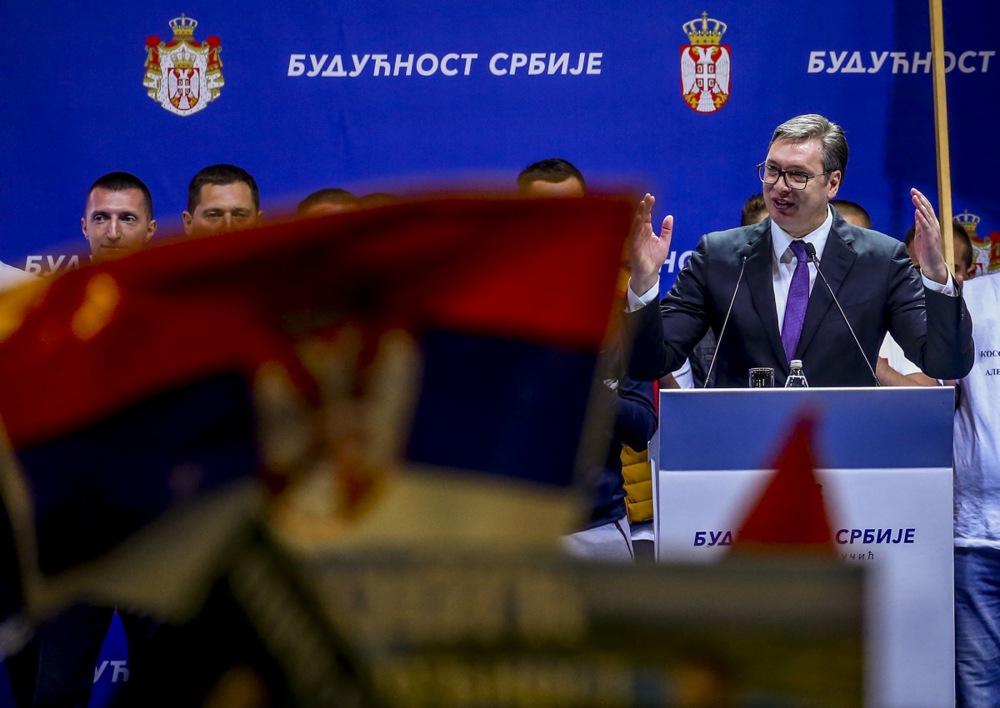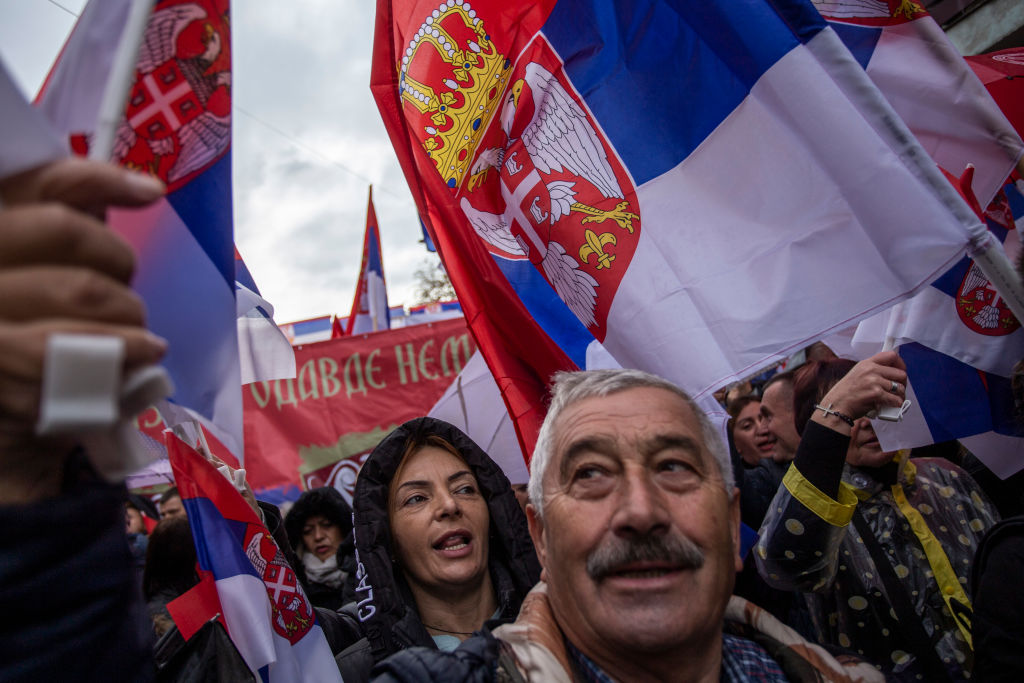Leaked documents from the Kosovo Government show the country assenting to a key compromise with Serbia.
The papers, leaked to local media on October 31, show Kosovan Prime Minister Albin Kurti agreed to create a special devolved government for the majority-Serbian areas within his country.
While that could mark a major de-escalation in tensions between Serbia and Kosovo, many appear to remain dissatisfied with it.
The documents, posted by the Albanian news outlet Paparaci, will reportedly “[provide] a framework of substantial autonomy for Kosovo Serb community”.
Document leaked by @PaparaciCom in Albanian: pic.twitter.com/QHx3ybzy07
— kos_data (@kos_data) October 31, 2023
The status of the ethnic Serb minority in Northern Kosovo has been at the centre of a major stand-off between the two nations over the past year.
Tensions in the region reached boiling point in September with violent shoot-out between local Serb activists and the Kosovo police.
Serbian President Aleksandar Vučić blamed the incident on the persecution of the Serb minority by the ethnic Albanian majority. Kurti said the Serbian military had been behind the incident, supplying weapons to the Serb gunmen.
Relations between the two, which the European Union has been keen to mediate, appeared in deadlock. A meeting between the heads of each government and EU representatives on October 26 were reported to have led nowhere.
These latest leaks may turn that situation on its head.
Among some of the reported gains to be made by the proposed Association of Serbian Municipalities (ASM) are the rights to manage their own education and healthcare, and will also enable it to receive funding from Serbia itself.
The draft agreement also says that the EU will monitor the functioning of the ASM for the first two years of its existence.
Normalising relations between the Serbia and Kosovo is a priority for the EU. Both wish to join the bloc and Brussels officials have made good relations a prerequisite for their membership.
Serbia does not recognise Kosovo’s independence and discourages other nations and international institutions from doing so.
Once an ethnic Albanian majority province of Serbia, Kosovo declared unilateral independence in 2008 following a brutal guerrilla war and the NATO bombardment of Serbia.
European Commission President Ursula von der Leyen was in Montenegro on October 31 to push for the expansion of the European Union. https://t.co/xWxhpuuFtW
— Brussels Signal (@brusselssignal) October 31, 2023
Many in Serbia say they believe the documents still represent a raw deal for the country.
Speaking to Brussels Signal, Dušan Dostanić, a researcher for the Belgrade Institute for Political Studies, said the ASM should have been created years ago as per the earlier 2013 Brussels agreements mediated between Serbia and Kosovo.
“The Serbian side abolished all Serbian institutions in Kosovo in exchange for the association. Still, Albanians did nothing for 10 years. Now we have a new deal on the table. The same association in exchange for de facto recognition of ‘Kosovo independence’,” he said.
Dostanić maintained that the ASM would effectively be “nothing, or only some kind of an NGO” since the “Albanian side insists that the [ASM’s powers] should be … in accordance with the Constitution of Kosovo”.
The Kosovo Constitution may also prove an obstacle on Kurti’s side. He had earlier denied creating the ASM as he claimed establishing a special political body for the Serb minority would violate the equality of Kosovo’s citizens before the law.
Trouble began earlier in 2023 when the Serb minority boycotted elections in its local towns.
This led to ethnic Albanian mayors being elected. When the Kosovo Government tried to install these mayors into the various town halls, serious riots broke out.
Dostanić maintained that this situation had not yet been resolved. “The Serbs boycotted the last election and now Albanians are in power there with no legitimacy at all,” he said.
“So what kind of Association could it be when Albanians are in power in four municipalities in the North?”
He also seemed pessimistic regarding tightened security in the Serb-majority areas.
“In a way it’s getting worse and worse. 10 years ago, there were no Albanian special forces in North Kosovo, and now they are building bases all over,” Dostanić said.





